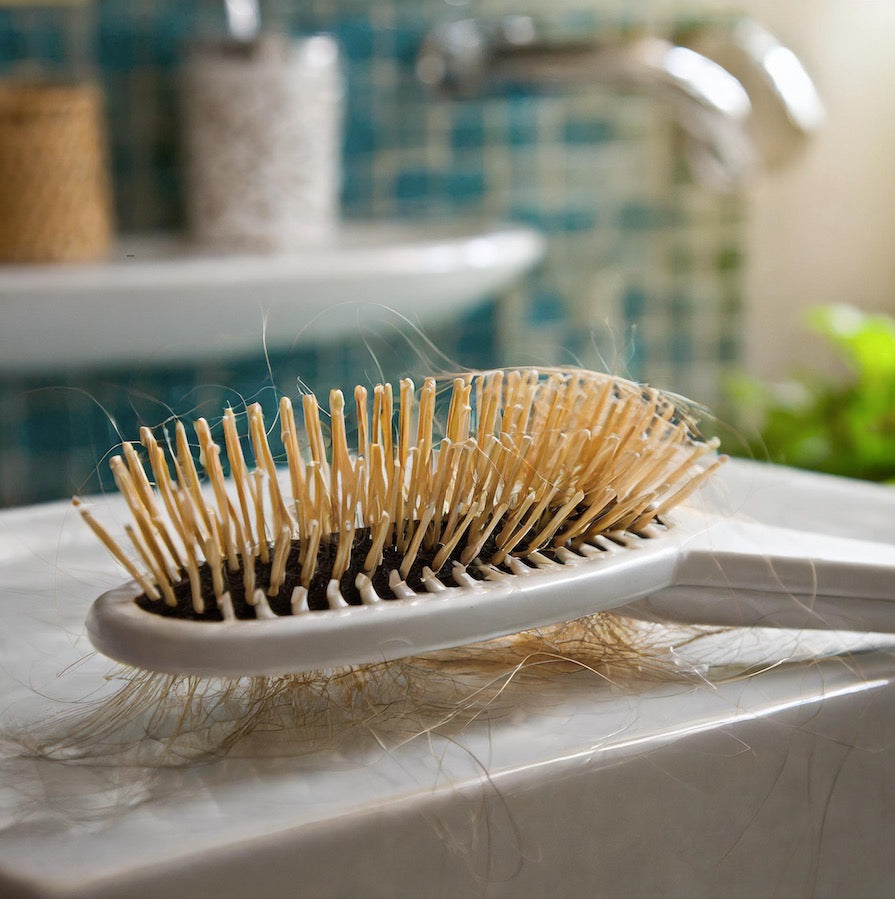
The Untold Impact: How Hair Loss Affects Confidence
The Untold Impact: How Hair Loss Affects Confidence
Hair loss is not merely a physical concern; it transcends into the realm of emotional and psychological well-being, significantly impacting an individual's confidence.
Whether it's a receding hairline, thinning patches, or balding, the psychological toll of losing one's hair cannot be overstated. In a society that often equates hair with youth, vitality, and attractiveness, experiencing hair loss can lead to a profound sense of insecurity and diminished self-esteem.
Understanding the intricate relationship between hair loss and confidence is crucial in addressing the holistic needs of individuals grappling with this issue.
The Psychological Burden:
For many individuals, hair loss represents more than just a cosmetic change—it symbolises ageing, illness, and a loss of identity.
The mirror becomes a source of distress as receding hairlines or bald spots serve as constant reminders of perceived inadequacies. Such concerns often extend beyond vanity; they penetrate deep into one's sense of self-worth and confidence.
Social Stigma and Perception: Society's obsession with physical appearance exacerbates the impact of hair loss on confidence. Media portrayals often glorify thick, luscious locks, creating unrealistic standards that contribute to feelings of inadequacy among those experiencing hair loss.
Moreover, stereotypes associating baldness with ageing or diminished attractiveness can lead to social stigma and discrimination, further eroding an individual's self-assurance.
Impact on Personal and Professional Life:
The repercussions of hair loss extend beyond personal insecurities and infiltrate various aspects of life, including career opportunities and interpersonal relationships.
Research suggests that individuals experiencing hair loss may avoid social gatherings, job interviews, or public speaking engagements due to fear of judgment or ridicule.
This avoidance behaviour can hinder professional advancement and limit social interactions, thereby perpetuating feelings of isolation and low self-esteem.
Emotional Distress and Mental Health:
The emotional distress stemming from hair loss can manifest in various mental health concerns, including anxiety, depression, and body dysmorphia.
Constantly scrutinising one's appearance and seeking validation from others can lead to a cycle of negative thinking, further exacerbating feelings of worthlessness and hopelessness.
Left unaddressed, these mental health challenges can significantly impair one's quality of life and overall well-being.
Coping Mechanisms and Support:
While the emotional toll of hair loss is undeniable, it's essential to recognise that there are coping mechanisms and support systems available to help individuals navigate this journey.
Doing something about hair loss can often help improve self confidence. Seeking professional help from therapists or support groups can provide a safe space to express concerns and receive guidance on building resilience and self-acceptance.
Additionally, exploring interventions such as hair restoration treatments or taking specifically made hair loss supplements can empower individuals to regain a sense of control over their appearance and confidence.
Conclusion:
Hair loss is a deeply personal experience with far-reaching implications for one's confidence and well-being.
By acknowledging the psychological impact of hair loss and promoting avenues for support and acceptance, we can empower individuals to embrace their authentic selves and navigate their journey with resilience and confidence.
Remember, doing something about it will only make you feel better, but true confidence emanates from within, transcending the constraints of external appearances.